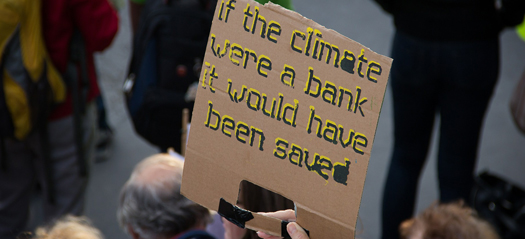
(Credit: )
“Biodiversity loss,” remains a common complaint among environmental advocates and world leaders vowing to “act on climate.”
This year, France hosted the virtual One Planet Summit put on by the UN and the World Bank, and world leaders committed to goals for protecting natural environments from biodiversity loss.
The January 11 event was a run-up to the UN Convention on Biodiversity set for May in Kunming, China.
Antonio Guterres, Secretary General of the UN, stated, “Pandemic recovery is our chance to change course,” and added, “The world has not met any of the global biodiversity targets set for 2020 and biodiversity is facing a financial gap of $711 billion per year until 2030. Sustainable financing is essential if you are to transition away from polluting sectors.”
Much of the summit discussed financial commitments. The Prince of Wales chimed in about the importance of climate financing through his Sustainable Markets Initiative, which aims to “put people and planet at the heart of global value creation.”
One proposal, the 30-30 initiative, sets out to protect 30 per cent of land and sea by 2030. Many think it doesn’t go nearly far enough, aiming to put only 10per cent under critical protection, while indigenous communities sounded the alarm about the chance that such “protections” may amount to land grabs and human rights abuses.
In a familiar story, those who attempt to right their own wrongs – those who have done the most destruction to the planet – seek to infringe on the rights of those who have been living most harmoniously with the natural world.
France24 reported that “earlier efforts to create protected areas such as national parks sometimes led to their eviction from ancestral lands.”
The One Planet Summit did not get much media coverage, or many streams on YouTube. Maybe it was the fact that the audio for many of the world leaders kept coming in and out, or the lack of consistency with introductions, the awkward translations or the monotony of general “goal” announcing, but Greta Thunberg’s Tweet about the summit did not mince words.
She tweeted, ‘LIVE from the #OnePlanetSummit in Paris: Bla bla nature. Bla bla important Bla bla ambitious. Bla bla green investments . Bla bla great opportunity. Bla bla green growth. Bla bla net zero . Bla bla step up our game . Bla bla hope. Bla bla bla…* *locking in decades of further destruction.’
LIVE from #OnePlanetSummit in Paris:
Bla bla nature
Bla bla important
Bla bla ambitious
Bla bla green investments
Bla bla great opportunity
Bla bla green growth
Bla bla net zero
Bla bla step up our game
Bla bla hope
Bla bla bla…**locking in decades of further destruction https://t.co/veGb4T7kmr
— Greta Thunberg (@GretaThunberg) January 11, 2021
Part of Thunberg’s frustration is the nonbinding nature of the agreements, meaning countries that do not meet targets are not held accountable. Notably absent from the conference were delegations from Brazil, Russia, the United States and India.
Chancellor Angela Merkel of Germany railed against deforestation. Germany, along with Norway and the United Kingdom, has set aside $5 billion for rainforest protection. Still, without hard hitters like Brazil doing their part to protect “the lungs of the earth,” the coalition’s lofty goals may not be met.
Scientists claim that the earth is in the middle of a mass extinction event. On January 13, a report by 17 scientists was published in the journal Frontiers in Conservation Science, entitled “Underestimating the Challenges of Avoiding a Ghastly Future.” The study acknowledges that previous projections for species loss were grossly underestimated.
It states, “Overall, perhaps 1 million species are threatened with extinction in the near future out of an estimated 7–10 million eukaryotic species on the planet (Mora et al., 2011), with around 40 per cent of plants alone considered endangered (Antonelli et al., 2020).”
While world leaders’ willingness to stage grand events that discuss climate action and financial commitments offer hope to some, it is clear that business as usual will continue. The coronavirus, as an ever-present danger, mobilized governments and health agencies to collaborate in unprecedented ways.
The fact that there is no way to attribute each effect of climate change to individual actions makes the crisis seem less dire. The extinction of any one species will rarely make the front page of the newspaper.
The wholesale overhaul of the fossil fuel industry or the banishment of timber fellers from forests will cause outcries of economic injustice. Without internalizing the rights of nature, humans, en masse, cannot hope to reverse course rapidly enough to prevent this imminent mass extinction, but that doesn’t mean governments shouldn’t try.
Sarah Sakeena Marshall,
Grit Daily Staff Writer and The Muslim News Environmental Columnist